Excellence In Analytics & Leadership- Author Dawn Reeby

The podcast, with our second-time guest, Dawn Reeby, founder of Excellence in Analytics (EIA), author of the best-selling book, “Bigger Than Data” – A Law Enforcement Analyst's Roadmap to Marketability, Professional Development, Fulfillment & Joy”, and, “Building a Crime Analysis Legacy. A law enforcement supervisor’s roadmap to building long-lasting, high-quality analytical capacity”, discusses the ways on how we can collect quality data and use those data in analyzing problems in the community, filling gaps, and ultimately come up with solutions in solving these issues. This podcast also talks about the value of information and on how we can utilize our collected information in identifying patterns of behaviors of the people in the community.
The podcast, with our second-time guest, Dawn Reeby, founder of Excellence in Analytics (EIA), author of the best-selling book, “Bigger Than Data” – A Law Enforcement Analyst's Roadmap to Marketability, Professional Development, Fulfillment & Joy”, and, “Building a Crime Analysis Legacy. A law enforcement supervisor’s roadmap to building long-lasting, high-quality analytical capacity”, discusses the ways on how we can collect quality data and use those data in analyzing problems in the community, filling gaps, and ultimately come up with solutions in solving these issues. This podcast also talks about the value of information and on how we can utilize our collected information in identifying patterns of behaviors of the people in the community.
In this episode, we will learn the following:
- What are the number one problem of most communities?
- How do we efficiently collect quality data and utilize them?
- What is Dawn Reeby's new book about?
- Why it is important to understand the value of information?
- And a lot more!
As a First Responder, you are critical in keeping our communities safe. However, the stress and trauma of the job can take a toll on your mental health and family life.
If you're interested in personal coaching, contact Jerry Lund at 435-476-6382. Let's work together to get you where you want to be to ensure a happy and healthy career.
Podcast Website www.enduringthebadgepodcast.com/
Podcast Instagram www.instagram.com/enduringthebadgepodcast/
Podcast Facebook www.facebook.com/EnduringTheBadgePodcast/
Podcast Calendar https://calendly.com/enduringthebadge/enduring-the-badge-podcast
Personal Coaching https://calendly.com/enduringthebadge/15min
Host Instagram www.instagram.com/jerryfireandfuel/
Host Facebook www.facebook.com/jerrydeanlund
Hi everyone. And welcome to this week's episode of Enduring the Badge Podcast, I'm your host, Jerry Dean Lund, and I don't want you to miss an upcoming episode. And so please hit that subscribe button and why your phone's out. Please do me a. And give us a review on iTunes or apple podcast. It says, Hey, this podcast has a great message and we should send it out to more people.
So please take that 30 seconds to a minute to do that review. And just maybe by doing that, it'll push this up into someone's podcast feed that really needs this message. I wanted to welcome my listeners to a new coaching program. I have it's called fire and fuel coaching. It's dedicated to you the listener and it's built just for you a custom program.
That's gonna allow you to have the best relationships, the most amazing marriage. The most important thing is discovering your truest potential and your inner wisdom and that motivation. I'm just gonna help you find it, cuz it's in you. And I know that if you want to learn more about the program, please D me.
@jerryfireandfuel on Instagram or, @enduringthebadgepodcast on Instagram, you can also go to the website and leave a voice message there for me. Any of those three will work. I will get back to you as soon as possible. My very special guest today is Don Rey. How you doing Don? I'm doing great, Jerry, thank you so much for having me back here again.
It's great to be here. Yeah. It's excited to have you back. You are only the second guest to come back and I only bring guests back when they make major changes in their lives or do something cool. Like you just did. Yeah. Thank you. I appreciate that. I, I wanna say the same about you . Thank you. So let's, I mean, we have another episode with Don on it, so let's just kind of like briefly tell a little bit about yourself and then we're gonna jump into what you created with this new book.
Yeah, sure. Well, I've been in the law enforcement environment since, oh my gosh. The early, the late nineties and, uh, with a little break in between, but really diving into the predictive analysis and building analytical capacity for police agencies. And, um, so I spent a ton of time with multiple police departments, uh, consulting and, and flying all over the globe, trying to help them build that.

Political capacity in their particular agency and then supporting them virtually and supporting them through training and coaching and all kinds of fun stuff. Uh, so, uh, it's wonderful to see folks, you know, create solutions that are data driven and, and, and really get going with the times. And so, yeah, so that's a little bit about me.
I have two girls and love yoga and nature, and really bringing that wellness into life as well. Uh, particularly in the law enforcement arena. Yeah. That's a, a lot to balance there, right? With your career. And two kids and trying to take care of yourself as well. Mm-hmm but let's so I believe I saw pictures.

You were in Dubai or someplace like that. Yeah, I was in Saudi Arabia a couple of months ago. Yep. Yeah. I was so thankful, uh, working with ISSAP and building analytical capacity for, uh, military and police out there, which was quite amazing. Just culturally amazing. I bet. I bet mm-hmm so. I'm gonna ask the obvious question.
Mm-hmm why is data so important? And I'll just leave it at that. Yeah. I'll just leave it right there. well, I think, um, you know, the information that we collect in fire police, the information that we collect can be quite useful to help us really develop. Qu, um, quality responses to events that are occurring in our community.
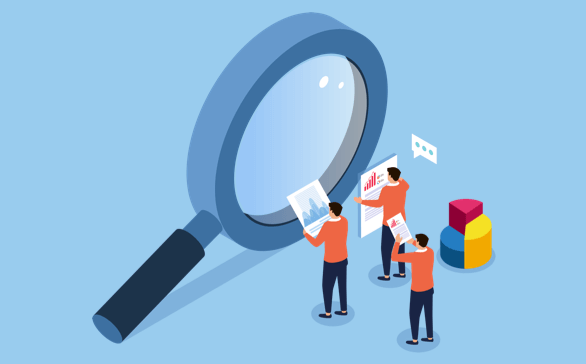
So in the, in traditional policing, traditional fire, we had that whackamole approach where you're just responding. You're reactive, you're going to call to call, to call and you see, and you know, that things could change. But you just don't have the time to do it. And so using the great information that's collected during all of these incidents and all these events, we can actually make smarter decisions.
We can deploy more appropriately. We can, um, create solutions that might be a little bit unique to the policing world. We can. Build in partnerships like clinicians and other relationships that are gonna really help help the individuals in the community and help our officers respond in a productive and safe way.
Yeah. The data's where it starts. Right. Right. So I'm gonna. So, how do you get these people that are collecting the data to like give you good data to use? Well, that is a loaded question. right, right. So, so some agencies are, are very aware and they have great systems in place to collect quality data and, and make that data available.
But. Really we've seen this growth in this industry in the last 10 to 20 years. And so there's a lot of police agencies and fire agencies who simply don't have the capacity and really didn't have the value added or understanding of the value added to even collect quality data. So, you know, you just kind of press the button and get the information in there, get it, to pass, whatever things that needed to pass.
Yeah, yeah, yeah. And that's the end of it. Right. So whatever we can submit to the state, it passed. We're good. Right. Right. So, um, one of the things that I like to do when I work with an agency is really help them understand the value of the information. And I'll give you an example. I started at this police agency a few months ago and I walked into roll call and I said, what's your number one issue in this community?
And they said mental health. We go to all these mental health calls and these individuals don't need us. They need someone else, but we keep on going to these calls and it feels like a waste of time. We bring 'em to the hospital. We go back to their house. The next day we bring 'em back to the hospital and nothing really seems to stick.

Right. Sure. So I said, all right, so that's your biggest problem then? You know, what would be a good solution? Would you like maybe a clinician to work with you or would you, oh my gosh, that would sound amazing that clinician can provide services and housing and food and anything that this individual needs, uh, that might get them out of that cycle of, of right, right.
Um, the, a difficult way to respond to a case, right. Or to a. And so I said, okay, so, so you all want clinicians? Well, I have some resources that can help make that happen. Really? You have some, yeah. Yeah. I need something from you to make that happen. And
aren't you. And so when you make the connection between. You know, we need this information to get the funding. We need this information to measure our success, measure our gaps and fill them. We need this information to help you so that our community is served better. And you're not bouncing from call to call, to call from one heroin overdose to another.
Right. Let's get these folks to services that they need and they start to think, you know, what that kind of makes sense. Yeah. Or let's work together as a team. Tell me what you need. I don't have to like it, but I'll do it. And now you have to buy in. Yeah, I, I do love that, that how to get that buy in, because that would make total sense.
I just finished up, I had to do 16 hours of training in the last couple days for my post certification. So I watched a video about Seattle, uh, police department about how they're trying to handle some of their mental. Crisis and using some different outside resources to help them. And in Seattle they had, I think only five people in this one department trying to help all the community with their mental health needs.
Yeah. Which is insane. Yeah. Yeah. And it, and I'm sure as, do you know what data is on a lot of these departments far as what? Like, is that such a huge part of what they're responding to? Because I can tell you. What I think . Yeah. Yeah. So, absolutely. So mental health, substance use, um, substance abuse, um, you know, really mental health is a big portion of our police response overall.
I mean, I, I don't know, maybe 30 to 60%. I mean, I know that's kind of a big area. Uh, I would probably argue more than that, right? Yeah. It could tie into a lot of things for. It really can. And the, the thing is Jerry there's resources out there. There's so many funding sources who will deliver a clinician to you who will partner with you, who will bring in these resources.
If you can provide the, the. information that they need to ensure that their money's going to the right spot. Yeah. And so when agencies become aware of this, they say, how do I do it? And, and that's when the conversations really begin about quality, predictive analysis, data driven strategies. And that's just one benefit.
That's just one benefit. Not only for the officers, but for the entire community. Right. What would be some of the other benefit? So really we can deploy smarter. We can, um, a lot of agencies are losing funding. There's some morale issues, right? And some community members who are not loving police and not loving, you know, maybe they love fire a little bit more than they love police.
Right. Depends on where you go. Depends on where you go. . And so we can really maximize our dollars by putting officers where they need to be, to be most efficient and effective. Um, we can provide tools and lists to other partners that get them involved so that our officers are not necessarily taking on all of that.
We can use the information to identify. To identify patterns of behavior. Um, there was a catalytic converter theft series that was happening in this one community. We know that that's not like a singular event. So we coordinate with the area agencies to identify multiple catalytic converter thefts and, and make an arrest.
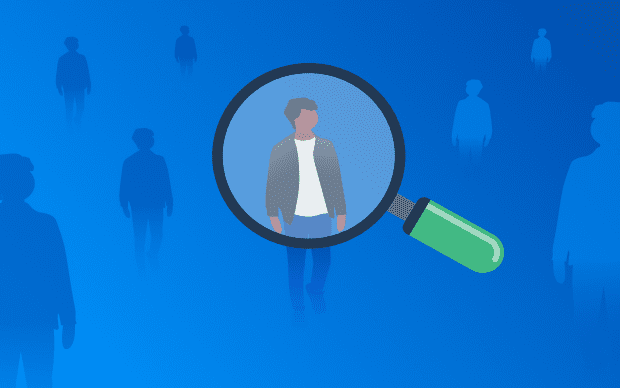
Right. But that's very difficult. You know, um, so difficult to get your information outta your, your system, right? So crime analysis can allow you to look at that at that macro level and set up a bunch of processes that just kind of tell you, Hey, this is abnormal. Take a look into this. There's gotta be something in here.
Right, right. Excuse me. And going back, just, I was thinking while you were talking about that, you know, deploying, you know, services differently and stuff like that, our hospitals in Utah, and I'm sure it's no different than any other state are just. Overwhelmed with mental health, uh, patients where they're holding them, you know, days inside the ER, basically to find them a bed mm-hmm and then the ambulance of some sort pulls up and transport 'em.
So there's just constantly this like flow of people coming and going. And I was like, yeah, there probably needs to be, I mean, there's a lack of beds, but maybe there's. Better analytics that could solve someone's problem. Yeah, it really, so it really is wonderful. When you bring in analytics. I was in a partnership with, um, hospital and police data where we took the data from multiple police departments and integrated it with hospital data and identified those individuals who were freak.
We called them frequent, um, utilizers. Right? Mm-hmm they were utilizing multiple. Uh, resources, right? Hospital, fire, EMS police. So we were able to, to look at them over different neighborhoods and really say, Hey, this person is just suffering. Let's give them the resources that they need. And all of this stress from these multiple levels we'll will dissipate.
Right. So, yeah. Um, so it's not just within one agency. We can really use information in this more macro level to drive some of these bigger changes in policy and so forth. Yeah. And I see that impactful to the community because. The deployment of resources are more effectively. And when that happens, they're probably more timely.
Yes. And, you know, the end customer or person gets the best service that they, they can get. So exactly. You compiled all this knowledge you have into this great book. Dawn, tell us about the book. Yes. Building a crime analysis legacy. So I, I, this is book number two in the last 10 months, so it's been a little wild , but, um, I've been teaching this stuff for so long that I, I knew that the same challenges were coming up over and over again for agencies who were looking to build capacity.
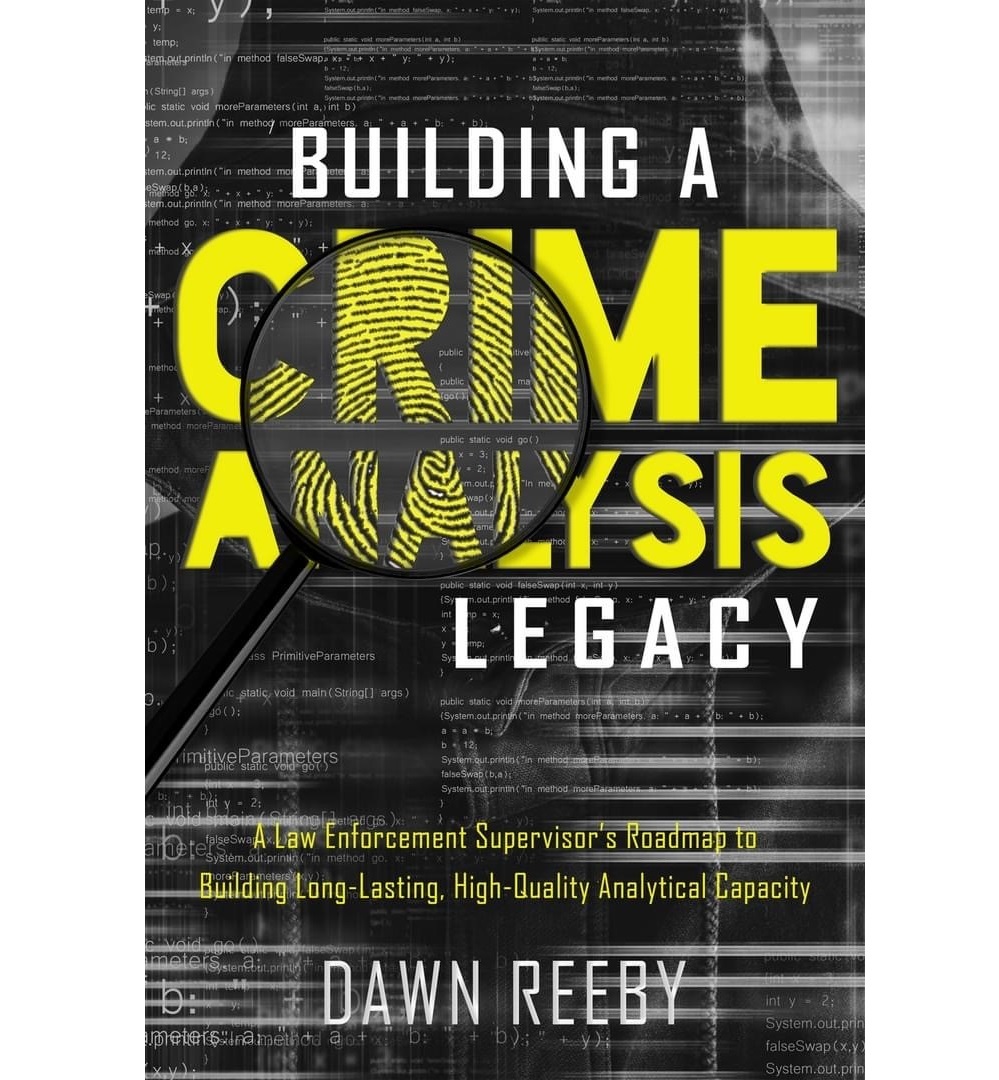
But didn't really know where to start, or maybe they had like hired an analyst at some point, or maybe an officer was assigned to an area to be, to be that analyst. And they kind of would just grabbing bits and pieces from everywhere and trying to figure out how to pull it all together. And it was very fragmented.
And so what this book is really intended to do this book, uh, building analytical, uh, I'm sorry, crime analysis, legacy building a crime analysis legacy. What it's intended to do is really give police agencies a step by step manual on exactly the key things that they need to do to build analytical capacity.
Step one, step two. Here's a problem you're gonna run into and here's how to deal with it. Right. We talk about buy-in we talk about data, access, data, quality, um, retaining qualified analysts. How do we actually find a qualified analyst and retain them, right. Yeah. Right. And how do we build that legacy so that we don't have all this transitioning chaos happening within the unit, right?
Yeah. And so it's a leadership book really? Leadership. That's interesting. Had to. So as a supervisor of a police department, would you read this or who would be the person that would best, uh, get the best results from reading the book? So I would say this book is directly for supervisors who are looking to build a crime analysis unit.
So this could be your chief. This could be your executive, your, um, deputy, your, um, captain. Maybe it is the supervisor who's assigned to create the unit. A lot of times, um, the, the, the material that's in here is a lot of the things that the. Would ask me on a regular basis. So I may as well tell the people who are doing the thing yeah.

how to do it. And so, um, also fire, I would definitely say, you know, the structure is very similar to policing and you all need data. You all need to access your data to use your data. And to really create the morale and leadership that's needed to use the information to drive some of those decisions. So, uh, it's specifically intended for law enforcement executives and supervisors, but certainly there's others who can gain value.
Um, it's, it's very much an operational manual in a sense. And so anyone who's running a, I, I, with my business, I've built in business concepts in here. What do leaders think about? Right, right. Strategy. We think about partnerships. We think about systems. And so all of that is built right into that book.
That's that's awesome. I can, and I can see totally how. The fire service may be lagging behind, at least in my knowledge of probably maybe using analytics a little bit better. And I'll just tell you this a little brief story. I think when I think about analytics as kind of doesn't really tie in, but it does a little bit is like you're talking about getting good buy in, in input and stuff like that.
Mm-hmm I was over uniform. And we had a closet and I was over the inventory and I'd count all the time, you know, count and log in all the new inventory, all the inventory that was taken out. But if one person goes in there and takes something out of inventory yep. Then it's all gone for not so that's exactly right.
You go start over. Exactly. Yeah. So I see how you like creating this buy-in of like, We can use these numbers. Mm-hmm to, like you said, better deploy ourselves. Like that's only gonna make your life better and better. The, you know, the citizens that surround you, especially cuz let's be honest in the first responder world.
No one really enjoys going on. Repetitive people like, you know, frequent users of the system. Yeah. Some, some definitely need it. Some definitely abuse it, but you know, to your point, you know, let's get these people what they need and move how much burden they're putting on the system, because it doesn't take very many frequent users to create a massive burden on the system.
That's exactly right. You know, when I talk to those officers in roll call, They were naming, oh, Jane mighty, you know, they, they know whose house they go to all the time. Right. And the reality is. That officer is gonna be a lot less frustrated if that person is served and that officer can do the things that he or she wants to do to serve the community.
So they're not always going and going and going cause our officers, I mean, these are humans, these are humans, these are people. Um, and, and they. In fact need their own, um, services sometimes. Right. All do. Right, right, right. And so creating systems and structure and operations that flow creates a lot less stress at that higher level.
So I've, I've worked with supervisors who are implementing analytical functions and they're torn 50 different directions. And they're just like, what, what do I need to do? Can you just like, tell me yeah. Right. The whole back to the fragmented. Exactly. And so when you have systems in place and you've oiled them, life just gets a lot easier.
It could be, um, you're, you know, you're oiling your, your home, right? Yeah. And so the systems in your home make life easier. And so the same in policing the same in fire. When you have quality systems in place, you can answer questions quickly when someone says, Hey, that address is that a problem address?
You don't have to go by what you think. You can just look it up and, and do a quick little couple of button press and that's. Um, so it's gonna give you a lot of the statistics you need that I think a lot of people believe crime analysis is crime analysis is so much more Jerry. Once you get into it, you're like, oh my gosh, I solved all these cases.
This is amazing solving cases. That is amazing. Yes. With the workload everybody's under. Exactly. I mean, imagine you're a detective and you're working a burglary series of two or three cases and crime analysis comes in and says, Hey, detective L I wanna give you, um, four other cases that I think are part of your series.

And I'm about to make you look real good. I'm about to clear them all for you because here's the suspect. . And then that detective becomes very happy and can go have some tea or coffee, right, right. And it is, and it's very kind consuming to work cases and stuff. I, um, I do fire investigations as well, and like, it is very time consuming.
And so like I can understand on the police side of things, like how many cases they're working and how much time that is and how fragmented it, you are as a detective with all the other cases. Going on and coming in. So, um, I, you know, I I'm, I'm, you're, I've got so much going on in my brain. I can hardly even talk cuz I'm like, yeah, everybody should be doing this.
And like, it should just make things so much easier and, yep. It's. Exactly and everybody can. And so the book really outlines if you're a small agency, if you're a medium agency, if you're a large agency, you know, you're gonna have, uh, people thinking they have to make purchases and thinking they have to buy big programs.
I've had even some, I, I read an article the other day and they said, well, we can just have some artificial intelligence and that'll be our. Crime analysis. I'm like, no, it's not just statistics. It's critical thinking. It's connecting the, the dots it's pattern identification. And in the tactical sense, it helps with a series in a strategic, uh, sense.

It helps with, you know, your long term approach to problems, creating solutions that are cost effective, that work, and that can be measured. And those. Are are of value to police agencies who are accredited, who are working toward accreditation and who quite honestly just wanna do a really good job, right?
Yeah. Yeah. Um, and data helps you do that when you use it properly, right. What person in the fire service in or in basically in any service? Gonna go to their boss without some data. Right. And then you better make sure you have the right and good data to pitch your point. Cuz if you don't. You're probably gonna get shot down.
exactly, exactly. And, and what we don't wanna see is, you know, someone having to go get data right then and there for the first time, what we wanna do really is create systems and put these things in place where we know that it's clean. We know that it's, um, you know, gonna give us a certain increase or decrease.
We know where to go, to find the suspects. We know where to go to find spatial relationships. And so all of these systems must be in place. Um, and you know, and there's this key components that need to happen, but really even a small agency can use information to drive decisions, um, using a, a simple. I'm not gonna promote an Excel sheet, but using a simple Excel sheet.
and so it's interesting because I was in Florida. I was in, um, Saudi Arabia. I'm in California, I'm in, um, Arizona all over. And we literally teach the same things. And so I thought let's package it up, put it in this book, get it into everybody's hands. And of course there's a program that goes along with it.
So if somebody wanted to really build their leadership, they could, uh, participate in the program as well, and really work alongside a team of people to build that capacity at their agency. Um, the book also has a bunch of book bonuses. So a police department who. Yeah. Yeah. So a police department's like, Hey, I've never done.
Comstat what's a good one. Look like I give you an example, a downloadable example in the bonuses. If they say I've never done a bulletin before, how, like, what is it supposed to be? I give you a downloaded, you know, loadable example, um, you know, um, a, a. I also put in there. I think I put in there. No, I definitely put in there um, a strategic plan on how to create buy-in, you know, so what, what layers do you need to do?
First, second and third. Um, there's lots of tools in the book, bonuses that really help the agency move at an accelerated pace to implement the thing that's gonna help them in the long term. Yeah. I, I like that. There's the bonuses. Mm-hmm and then of course there's the coaching kind of the leadership portion of that, because.
you can, you can buy a wonderful program or create a wonderful program. Mm-hmm . But if you don't present it in the right way, because everybody hates change, even though it changes like the, that is the theme of the world, it's constantly changing every day. Every second is changing. So you gotta expect it.
Mm-hmm . So if you don't present it in the right way and then have someone to maybe help you navigate those challenges, it's gonna be extremely difficult.
Absolutely. So a lot of folks who go through our program are several of them are in charge of crime analysis functions. And, you know, maybe they were an analyst or an officer or a Lieutenant from a different area. And they're like, I don't, what do I need to know? And so our coaching program really does, um, break down each and every section of the book, but it also helps them build their own leadership.
So to be somebody. That other people will follow well, other people will have loyalty to. And so, um, that is, that is a, um, transferable skill. And so a lot of times we'll have people put themselves through the program. Now I'm starting to see more police agencies send people to the program. But before it was all individuals sending themselves to the program.
And it's so amazing, Jerry, because I've had, um, people in our program for years and they won't leave. They're like, how else can we work together? Everything goes so well. And so, um, I, I have one client who's on year number three. He's like, what do you have for me? I just wanna know more things. And he keeps on elevating and getting promoted and all the things.
And so. Um, it's just, it's a wonderful thing to be able to package up 24 years of experience of falling, of getting back up into. Exactly what needs to happen to be extremely successful in, um, in, in, in a flowing police operation. So it's oftentimes that chiefs will very much love the folks who go through the program because they now own.
Themselves their own leadership, which of course, you know, in your coaching business, you know, that, uh, that's so important to own your own self, right? Yep. But they contribute and they move the agency at such a fast pace as a result of us working together that it's incredible to watch the transformation happen.
Yeah. Because there's something to be said about like handing somebody, a book mm-hmm or a manual on how to do something and reading it. And putting it into action. Mm-hmm without having someone to turn to that has the knowledge to answer that. Exactly. Exactly. Exactly. So we have our, um, October 4th, we have our, this year's cohort of individuals going through the program and then we closed the doors.
And nobody gets to go through the program until next October. Uh, so wow. We have one co cause it's nine month program. So we have, that's intense of the group going through. It's pretty intense. It's a, it's quite a commitment, but these are people who get results. These are people who become the leaders that they want to be, and they implement analytical function in a way that ha is really providing that agency with exceptionalism.
And legacy. So, yeah. Yeah. And yeah, exceptionalism as in the, the employee, you know, and then the exception data that they're, they're getting out that goes hand in hand. So I, I love that, that combination. I love the, when things have like the toolbox, like when I read a book and there's some downloadable things or mm-hmm, like, you know, you can reach out to the person that created, there is so much value in that because.
All of our everyone's perspectives is different. Mm-hmm and so you're reading something and they're like, ah, I just can't really like cross this concept because I only know, you know, This much about life or this much about analytics and, you know, try to solve the problem. You know, it's so much better.
It's so much easier to turn to something to someone. It really is. Yes. And, and I, and I've worked with hundreds of police departments. So chances are whatever your. Dealing with, we figured out a solution too, so you don't have to go through the pain alone. yeah. Uh, so it it's, it's quite remarkable. I love, love, love, uh, all of it.
And Jerry, I think you're gonna like this the most is that in, in, um, our programs, we really focus on one's personal wellness. Yeah. And so we ensure that there's not only leadership in the career piece of it, but leadership of self is a priority. And so we really make sure that that leader is healthy is, um, happy is joyous, is finding ways to contribute their soul is filled.
Their heart is filled. And so I, I truly believe that that's a big component of a leader. Yes, when you take excellent care of yourself. And so that is something that we focus on. A lot of times leaders do the opposite. They put everybody else first. Right, right, right, right. I'm sure you've dealt. You've helped some clients through this too.

And so when somebody is able to pause a leader, And provide them with a platform where they're heard and there's, you know, no one kinda, um, you know, depending on you hearing you, right? Yeah. It's just, it's just a different, remarkable growth strategy. And so I love that component and, and, um, and I, I think it's one of the most valuable things that we offer.
You can learn analytics and, and you can do a lot of things, right? Yeah. Yeah. Uh, with reading and so forth. But the accountability with that leadership of self is, is a critical component to all of our client's success. Right? Because far too often in the first responder role, there's. We are defined by what we do.
And I see a lot of that leads to not great self care. Yes, you got it. You got it. And so we need to redefine who we are, um, and need more than just our job, right? Yep. Yep. Which is of value. Right, but more than just a mom, more than just the person who does the thing and really get out of that conventional way of thinking and become innovative and inspired by our lives by design.
Yeah. Yeah. Oh, I love that. Yeah. I love the design portion, cuz if you don't. Design it, somebody else might design it for you. Mm-hmm and uh, if you don't write it out and plan it, mm-hmm, find ways to, you know, remind yourself about that. Mm-hmm , you know, it's, it doesn't happen. That's exactly right, exactly.
Right. So creating, so the book talks about creating a vision of your crime analysis function. Right. And so, because the same thing, if you don't know where you're going, how do you know where you're going? yeah, yeah, yeah. And so let's be proactive. And so the same applies to our lives. Let's create that vision of what we want our lives to look like, to feel like, to smell like to yes.
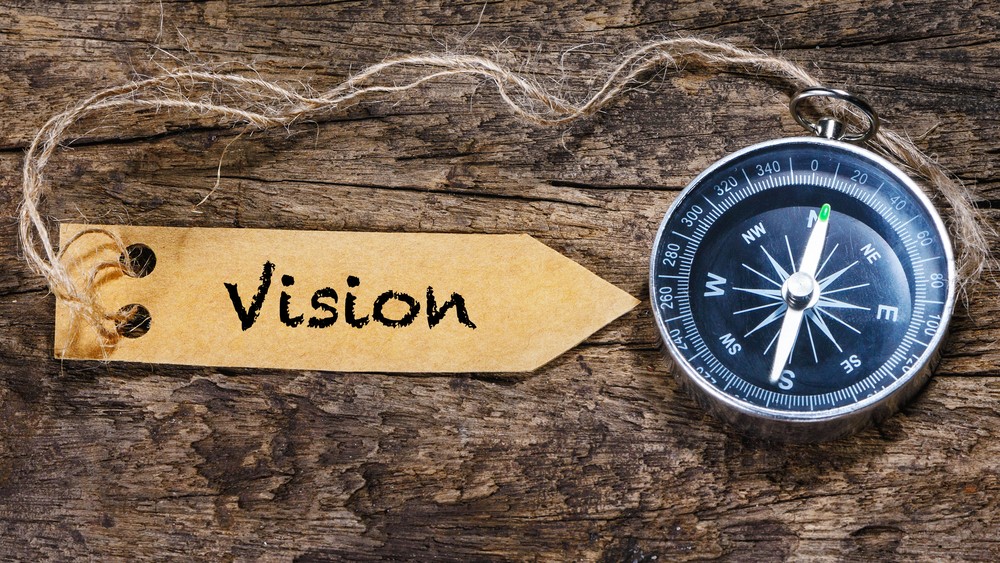
Be, you know, be around and, and let's engineer that backwards once we've decided. Where we're going. And so, um, vision casting in the sense of, um, designing, like I'm, I'm not gonna draw our vision board kind of thing necessarily. Yeah. Yeah. Although if you want to go for it. Right. Uh, but what I do encourage is some really deep thoughts and it might take a few months, right?
Some real deep thought around what you want. Your, you. Career life to look like and was certainly what you want your personal life to look like, and then go and get it. . Yeah. So doing that deep work, many people wanna shy away from doing the deep work mm-hmm because it takes a while. It does, and results is not super instantaneous.
Mm-hmm what, what, what do you say to people that. I don't have the capacity or the time to do the deep work. Yeah. If they're not ready, they're not ready. Right. Um, if somebody is not ready to do deep work, they're the only thing that I can do is really plant what's on the other side, that seat of what's on the other side.
And once that person is ready, then they're really asking the question how, yeah, how do I do that? And so we'll work together to really move that person from where they are. And it does take time and sometimes they don't even realize they're doing it. They're just. Come into a coaching call and they're, vomiting everywhere, blah LA LA everything's this, that, and the other thing.
And then we pick up the pieces and we create some concepts about what we want this new life of ours to look like. Cause we've done the hard work we've come to the table. We've spilled the beans, right. And it's freeing. It's so freeing. And so once you spill your beans, then you spill a little bit more and a little bit more.
And next thing you know, you actually start to see the results that you've been wanting this whole time come to you, uh, because you've been freed, right? Yeah. Yeah. I've seen people do that verbally. Mm-hmm um, I've seen, uh, other people do. In, in written form mm-hmm and just jour, not, yeah, like a journal, but I mean, just one day, just sit down and just put it all out there.
And there's just something freeing about either doing that verbally mm-hmm or down on can't really type it out. Cause I don't that not the same. I agree. I, I believe so. Writing it out just in your own words, you screw up that's right. Scribble out whatever line through it. Move on, do what you, you do.
Mm-hmm but it's, I think moving getting your brain to move through those. Yes. Emotions and stuff like that, because you can be the great, the greatest analytical person in the world. But if you can't take care of your home life or your life outside of that, That's gonna make you. Not very effective. Right, right, right.
That's gonna make you so a hundred percent a worker, that's gonna be your safe zone. That's gonna be what you turn to because it's easier for you. Right. So now you've disconnected. You've kind of sat back a little bit from developing those relationships outside of work and you've become work and then work becomes stressful and you have no way to turn and you have nowhere to go and that's it.
That's all you have. And so. um, once we get the ball rolling on this kind of work, it's quite remarkable what happens. And one of the things that I see most that happens is joy. Yeah. People begin to see and feel joy and it's, it's pretty amazing. And going back to your point about writing things down. This is instrumental in, in growth.
And so, in fact, right before this, this podcast here, I have this paperwork. I had my daughter, we had a little difficult time this morning and I said, okay, well, I'm on this podcast here. I want you to write the answers to this question. What do I want to be true in my home, right? Yeah. What do I want to be true in my home?
And this can apply to anyone here. What do you want to be true in your home? And then what obstacles the next topic was? What obstacles are in the way for you right now? Right? And then the last part of it is, you know, One or two things you can do to help get to that bigger picture. Where are you going?
And, um, I mean, she's 11, so we, we it's, it's a five minute thing, right? Hey, Hey, I'm like 11 or 21 or wherever you're at. Like, yes. I'm like. That did you take this outta your book? Cuz I'm like, that should be in it. If it's not maybe I'll write another book that is not in it. That was my scribbling before this but it's so true, Jerry.
It is true. Get to decide. We get to decide what we want our lives to look like. But when we have chaos at work and stress at work, and we're trying to build things that we don't know how to build, that just makes more nonsense for us. So this book is really intended to help people build the. Make it happen, have someone buy their side, working with them, to whether it's through the book or through the program, really working with them to help create the operations that are needed for effective and efficient analytics, and then should someone to wanna take their leadership to the next level and, and, and dig deep and ask some of these questions.
Then that's when they join the leadership program. And that's when they're ready to do. The work, the deep, the deep hard work. Yeah. I feel like what you you've been talking about and finding that joy is probably, you've seen a lot of people. Move from where they're feeling burned out to maybe now reinvigorated in yes.
In their, in their job and in their lives. And which equals that joy, you know, it's absolutely right. So there's that piece of it where we see people who are overwhelmed, so stressed out and they feel stuck. Yeah. And we create solutions for them. Right. Um, and then on the other end of it, I'm working with four analysts in the last several months.
Four analysts have moved from public sector to private sector because they are feeling underpaid, undervalued, stressed out all the time, civil unrest. And they're like, why am I even bothering? Yeah. And so I'm taking that information and putting it in this book so that a chief and executive someone in charge can know the things that we need to do operationally to create environments for our people to.
Right. Um, yeah. And I think just because you're the, the leader doesn't mean, you know, exactly how to do everything, you know, like analytics, like right. You, you may have you've, you know, something about analytics as the chief or the supervisor and stuff like that, but you don't really know the analytics and what it takes to get the analytics and stuff like that.
For the most part, I hate to say always, or, you know, that type of, you know, cause somebody's out there listening. Well, I know every, you know, every aspect and it's like, ah, right. you might, haveve been in the service long enough. You've forgot some things. exactly. And quite honestly, you may not be the one who wants to do them.
Yeah. So you may have to really, uh, strengthen these other mu muscles of intuition, um, inspiration. Uh, creating quality culture so that the people around you could can, can invest their time in, in the actual functioning of the analytics. Yeah. So, you know, sometimes we have these supervisors, I feel so badly for them because, you know, maybe they were a cop or an analyst or, you know, A Lieutenant and now they're in charge of a bunch of people with one week of training.
right, right. Yeah. Right. And one week of supervised this school and they're just like, I, I think I know my HR stuff and it's so much more than that. And so, um, you know, so the program that aligns with this is really, that's why it's nine months long because there's different things that come up and we do different scenarios.
And how do you coach versus lead in certain instances to really give practice. and really give, um, tools and experiences. So that, that new person, isn't your first time, so that you have really gone through this in, in a mock standard. Right. Um, and, and you can bring value from a, a, a, like a, a larger level to your unit, right.
As I think, just because you have years of service in different areas, you know, and then you're put into leadership role. Doesn't really. Mean, you know how to lead that's right. I think that can be said for a lot of different jobs all over is that you may get this job, but then there's very limited, especially, you know, with the job market, the way it is.
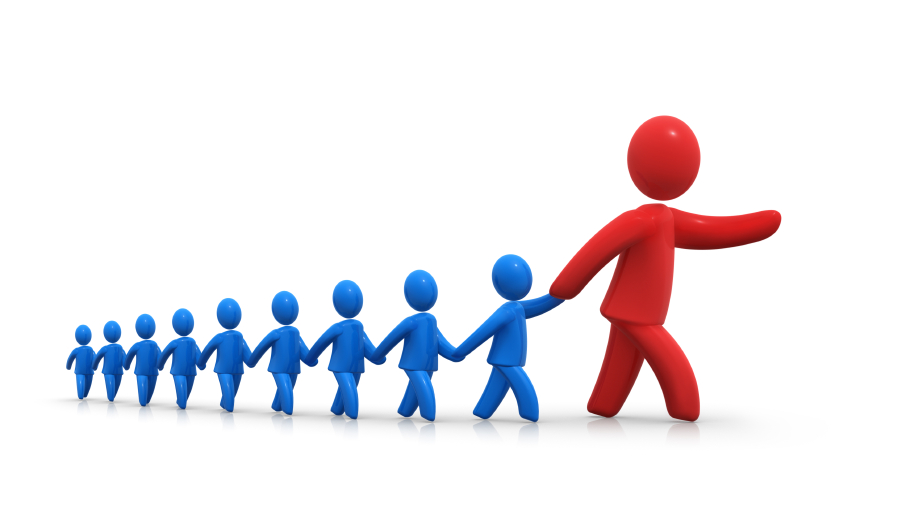
There's very minute limited, like coaching and mentoring that happens. And, you know, then you're. Then as a supervisor pissed off, cuz this person's not performing, but they didn't know. They didn't get the full deal from you on how they, you wanted them to perform or the knowledge to. To perform at a high level exactly.
And setting the expectations. Um, I see so many police agencies just kind of in, in fire too, going with the flow, you get a new person and you're like, oh, I'll train them a little. What do you wanna do? You know? Yeah. And so this really is no, what are the policies? What are the job descriptions that are quality, job descriptions, inspiring job descriptions.
What do the assessments look like? What does the buy-in look like? How can you inspire someone to own their role? Uh, to really be motivated and, um, in, and to create environments where people enjoy coming to you're. Right. We're not always taught how to do that. And, and in policing, in particular, we're stuck there for a while, right?
Yeah. yeah. Fire, you know, you captain, that's it like, you're, you're the one they're not voting you back, right. yeah. Right. And so hopefully, yeah. And so, uh, and so. It's important for us to really develop these skills in ourselves. Even if it does take nine months or 18 months or whatever it might be, uh, these kind of skills are transferable and meaning you they're gonna apply to your family life, any career that you're in.
And so it's important that leaders really. Stop waiting for their agencies to progress them and simply decide I am gonna be the best leader. I don't know how, but I'm gonna be the best leader and I'm gonna start today. And when you make that decision, then you start making other decisions that make that happen.

Right. Right, right. This, this book will set you up for success, not only in analytics, but in your life. And that's, that's where you wanna be. Right. You wanna be not just successful at work, but you want to be successful at home. Truly at the end of the day, that's the place you need to be the most successful.
Exactly. I agree. I agree. A hundred percent Don amazing conversation and amazing book. Where can people find you? Yes, August 10th. Uh, the book will be released. And so you can follow me on my LinkedIn Facebook, uh, called excellence in analytics. I'm also on Instagram, I'm learning, I'm learning Terry I'm learning.
I know. So it's all these social media everywhere. It's hard. Right, right. Uh, but if. Fails, you can go to excellence in analytics.com and I have everything there on my website, or you can just email me directly@dawnexcellenceinanalytics.com and we can hook you up with whatever you need for you, um, and your agency, or just for you.
Yeah. Awesome. Thank you so much for the conversation today and creating a book that's, uh, truly going to improve, you know, The analytical world, but more specifically the first responder analytical world, like you said, this is a transferable skill, so you can make yourself really marketable. Absolutely.
Thank you so much, Jerry. I appreciate you. All right. I appreciate you. Thank you again for listening. Don't forget to rate and review the show wherever you access your podcast. If you know someone that would be great on the show, please get a hold of our hosts. Jerry Dean L through the Instagram handle. At Jerry by and fuel or at Endur, the badge podcast also by visiting the show's website, enduring the badge podcast.
Dot com for additional methods of contact and up to date information regarding the show. Remember the views and opinions expressed during the show solely represent those of our hosts and the current episodes guests.
This podcast is part of the everyday heroes podcast network, the network for first responders and those who support.

Dawn Reeby
High-Performance Coach and Wellness Strategist
Keynote Speaker | Certified Trainer | Subject Matter Expert | Best-Selling Author | Private Coach 👉 Transforming service-based & emergency response leaders into balanced, highly productive, & HAPPY professionals!
Hi, I'm Dawn Reeby, Founder and CEO of Excellence in Analytics (EIA) and a I am a CEO-OF-YOUR-LIFE coach! I inspire service-based professionals to accomplish their work mission with precision and ease AND finally live a life of health, happiness, fulfillment, and joy! With 22+ years of expertise in building certified proactive strategies, I know what it takes to create excellence in a service career. And as a certified health coach with personal triumphs, I also know what it is like to overcome adrenal fatigue and other health challenges in a holistic and well way. I deeply believe that we CAN HAVE IT ALL and am determined to show others in service-based industry how to live lives they absolutely love!!!
I've enjoyed working with hundreds of analysts worldwide as a subject matter expert, best practices designer, and instructor for IADLEST, IACA, NHTSA, IACP, TXDOT, and other federal think tanks. Through these contracts, I've flown around the country building analytical capacity in agencies. I've designed and instructed in-person and virtual strategy and technical training. I ran the first mastermind solely for Law Enforcement Analysts and created the first analyst library. I've also been a Keynote speaker at many Law Enforcement and analyst-centric conferences.
Out of all these experiences, my heart is ha… Read More










